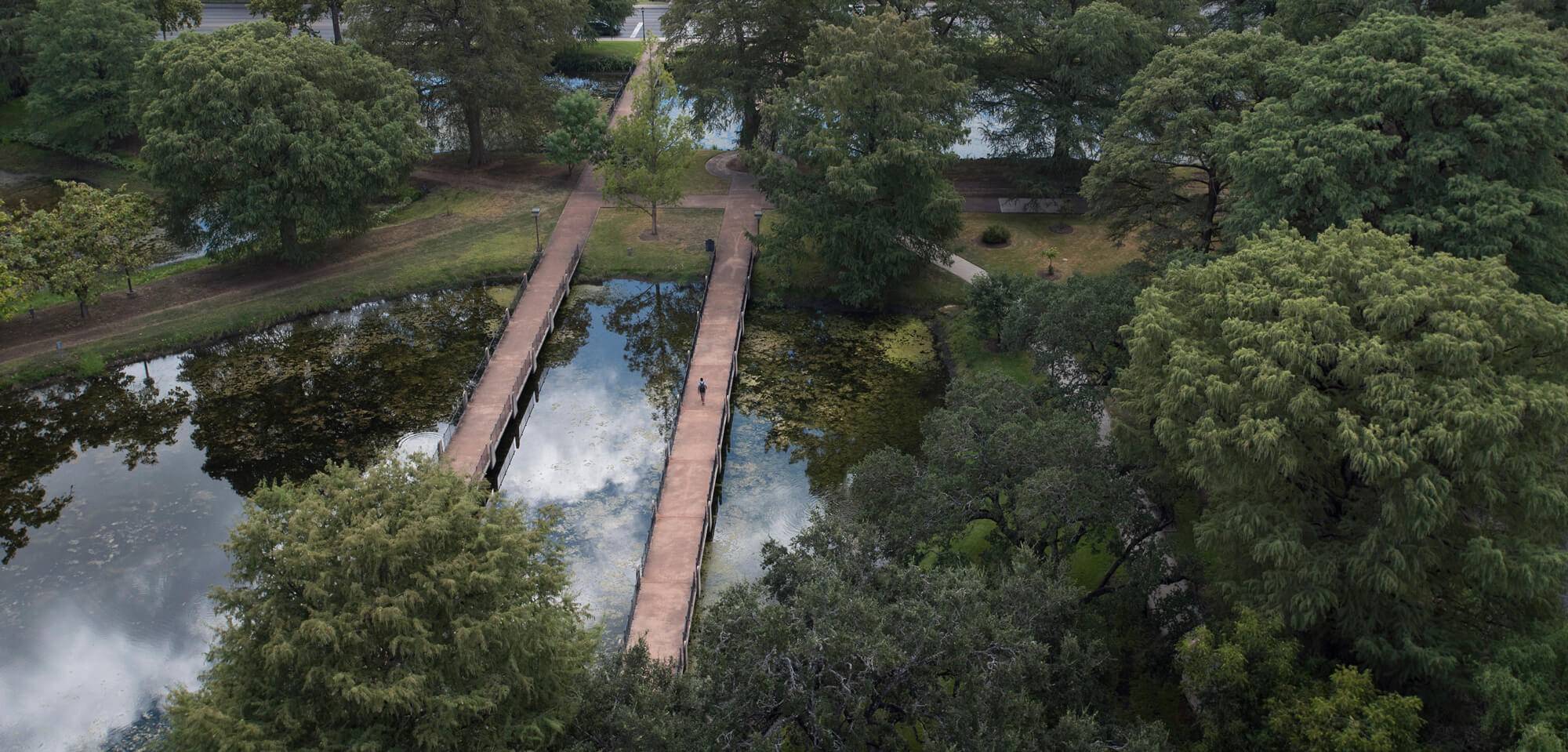Emma Carberry | December 16, 2019
For the past month, Texas State’s Health and Human Performance Department has hosted 64 Chinese elite rowers, 38 of whom have qualified for and will be competing in the 2020 Olympic Games in Tokyo. The remainder of the athletes comprise the men and women’s eights teams, who have not yet qualified for the 2020 games, and spent their time here working toward that goal. Between rigorous training at Texas State’s Student Recreation Center and on the water at Lady Bird Lake in Austin, the athletes also participated in a series of physiological and biomechanical tests conducted by Texas State’s Exercise & Sports Science faculty and graduate students.
The partnership was arranged by Sandy Abney, a 1996 alumna of Texas State’s Exercise & Sports Science program, who is finishing up her first year as the Deputy Director of High Performance for the Chinese Olympic Committee. According to Abney, the water at the team’s home training facility in Beijing is currently frozen over, and Texas is an ideal place for them to train due to the year-round mild climate. When she was asked to find a training location for the team in Texas, she reflected on her own time as a Bobcat and saw Texas State as a natural fit. To Abney, the facilities available to the team at Texas State were a key draw, but “probably the biggest decision-maker,” she says, “was the level of hospitality by everyone involved and their willingness to accommodate us.”
It isn’t always easy, Abney notes, to find a partner that is willing to work around the schedules of elite athletes on very strict training regimens. But, associate professor Dr. Ting Liu in the Department of Health and Human Performance was able to coordinate faculty and graduate students to be available for early morning, afternoon and weekend testing. Liu, who previously worked for the General Administration of Sport of China, says, “it’s a great pleasure working again with the Chinese national athletes and coordinating the testing with our faculty and graduate students. We were excited when our department chair, Dr. Karen Meaney, forwarded Sandy’s message and recommended us to conduct research testing as a part of the rowing team’s pre and post training trip to evaluate the effectiveness of their training.”
Assistant professor Dr. Matt McAllister and senior lecturer Kyle Patek conducted physiological testing along with graduate assistants Morgan Ullman, Shelby Summers, Justin Crane, and Tamlynn Niemietz. Ullman found the experience rewarding, noting that although she had conducted the BOD POD test before, the language barrier tested her ability to concisely convey the test’s purpose so that the team’s translator could easily describe the process. Being able to describe the test in layman’s terms is something these graduate students will have to do many times in their careers, and this partnership gave them the chance to begin thinking through that lens. Graduate students, Nigel Jiwan, Jieyun Zhan, and Liliana Renteria aided assistant professors Dr. Yumeng Li and Dr. Rachel Rolfe with the team’s biomechanical testing, which measured acceleration and rotation of body segments during rowing. Jiwan shared that he was grateful for the experience because it allowed him to learn new biomechanics testing programs and techniques that he would not have been exposed to without the partnership.
“It’s been a great experience to welcome the Chinese National Rowing Team to our College of Education,” says College of Education Dean, Dr. Michael P. O’Malley, “and impressive to see our faculty researchers, their graduate students, and the Chinese athletes all working together in the spirit of the Olympic ideals of excellence, global friendship, and building a better world through sport.” Abney agrees that the experience has been one of true camaraderie for everyone involved. It was her goal to make the team feel as welcomed in the United States as she did the first time she traveled to China, and she feels that Texas State has truly done that. “It doesn’t matter your background, your experience, your color, your religion, anything. [Sport] draws people together,” she reflects.
This week, the team will move on to its next camp, using the data they collected through the tests here at Texas State to manipulate their training in the next cycle. But even after they leave, Abney says, their gratitude to Texas State will last. “There’s absolutely a pride in it,” Abney says of returning to Texas State, and “to see how generous everyone involved at Texas State has been just makes me even more proud.”
